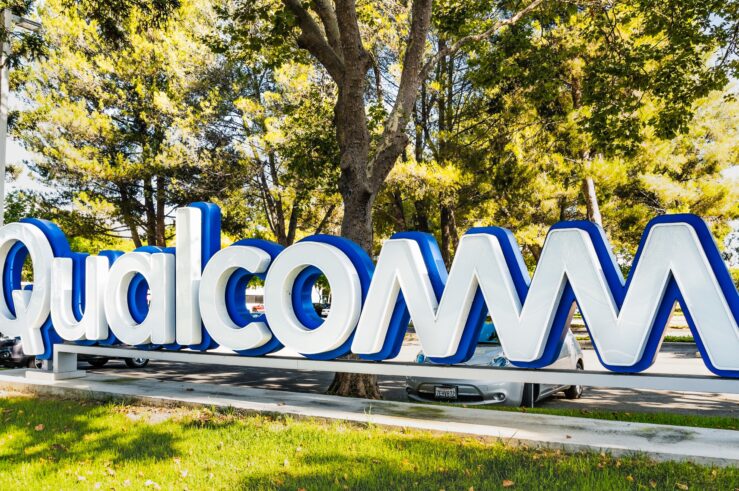Showing archive for: “Rule of Reason”
The Supreme Court Misses the Big Consumer Welfare Picture in NCAA v. Alston
In its June 21 opinion in NCAA v. Alston, a unanimous U.S. Supreme Court affirmed the 9th U.S. Circuit Court of Appeals and thereby upheld a district court injunction finding unlawful certain National Collegiate Athletic Association (NCAA) rules limiting the education-related benefits schools may make available to student athletes. The decision will come as no ... The Supreme Court Misses the Big Consumer Welfare Picture in NCAA v. Alston
The NCAA: Dr Jekyll or Mr Hyde?
The U.S. Supreme Court will hear a challenge next month to the 9th U.S. Circuit Court of Appeals’ 2020 decision in NCAA v. Alston. Alston affirmed a district court decision that enjoined the National Collegiate Athletic Association (NCAA) from enforcing rules that restrict the education-related benefits its member institutions may offer students who play Football ... The NCAA: Dr Jekyll or Mr Hyde?
The DOJ’s Antitrust Case Against Google: A Tough Slog, but Maybe an Intriguing Possibility?
The U.S. Department of Justice’s (DOJ) antitrust case against Google, which was filed in October 2020, will be a tough slog.[1] It is an alleged monopolization (Sherman Act, Sec. 2) case; and monopolization cases are always a tough slog. In this brief essay I will lay out some of the issues in the case and raise ... The DOJ’s Antitrust Case Against Google: A Tough Slog, but Maybe an Intriguing Possibility?
A Law & Economics Perspective on Ruth Bader Ginsburg
With the passing of Justice Ruth Bader Ginsburg, many have already noted her impact on the law as an advocate for gender equality and women’s rights, her importance as a role model for women, and her civility. Indeed, a key piece of her legacy is that she was a jurist in the classic sense of ... A Law & Economics Perspective on Ruth Bader Ginsburg
How Will the Application of Antitrust Law Change During the Coronavirus Crisis?
[TOTM: The following is part of a blog series by TOTM guests and authors on the law, economics, and policy of the ongoing COVID-19 pandemic. The entire series of posts is available here. This post is authored by Steve Cernak, (Partner, Bona Law).] The antitrust laws have not been suspended during the current COVID-19 crisis. ... How Will the Application of Antitrust Law Change During the Coronavirus Crisis?
Manne & Stout 2: Against Incorporating a Contract/Merger Equivalency Assumption in Vertical Merger Guidelines
In our first post, we discussed the weaknesses of an important theoretical underpinning of efforts to expand vertical merger enforcement (including, possibly, the proposed guidelines): the contract/merger equivalency assumption. In this post we discuss the implications of that assumption and some of the errors it leads to — including some incorporated into the proposed guidelines. ... Manne & Stout 2: Against Incorporating a Contract/Merger Equivalency Assumption in Vertical Merger Guidelines
The District Court’s FTC v. Qualcomm Decision Rests on Impermissible Inferences and Should Be Reversed
Last week the International Center for Law & Economics (ICLE) and twelve noted law and economics scholars filed an amicus brief in the Ninth Circuit in FTC v. Qualcomm, in support of appellant (Qualcomm) and urging reversal of the district court’s decision. The brief was authored by Geoffrey A. Manne, President & founder of ICLE, and ... The District Court’s FTC v. Qualcomm Decision Rests on Impermissible Inferences and Should Be Reversed
The FTC’s Errors in 1-800 Contacts
In an amicus brief filed last Friday, a diverse group of antitrust scholars joined the Washington Legal Foundation in urging the U.S. Court of Appeals for the Second Circuit to vacate the Federal Trade Commission’s misguided 1-800 Contacts decision. Reasoning that 1-800’s settlements of trademark disputes were “inherently suspect,” the FTC condemned the settlements under ... The FTC’s Errors in 1-800 Contacts
In Apple v Pepper, SCOTUS leaves home without its Amex
It might surprise some readers to learn that we think the Court’s decision today in Apple v. Pepper reaches — superficially — the correct result. But, we hasten to add, the Court’s reasoning (and, for that matter, the dissent’s) is completely wrongheaded. It would be an understatement to say that the Court reached the right ... In Apple v Pepper, SCOTUS leaves home without its Amex
The European Commission’s Google Android decision takes a mistaken, ahistorical view of the smartphone market
What to make of Wednesday’s decision by the European Commission alleging that Google has engaged in anticompetitive behavior? In this post, I contrast the European Commission’s (EC) approach to competition policy with US antitrust, briefly explore the history of smartphones and then discuss the ruling. Asked about the EC’s decision the day it was announced, ... The European Commission’s Google Android decision takes a mistaken, ahistorical view of the smartphone market
The Unreasonable Demands of Antitrust Populism
A panelist brought up an interesting tongue-in-cheek observation about the rising populist antitrust movement at a Heritage antitrust event this week. To the extent that the new populist antitrust movement is broadly concerned about effects on labor and wage depression, then, in principle, it should also be friendly to cartels. Although counterintuitive, employees have long ... The Unreasonable Demands of Antitrust Populism
Second Circuit’s BMI Decision Commendably Overturns the Justice Department’s Interference with Efficient Contracting in Performance Rights Licensing
Introduction and Summary On December 19, 2017, the U.S. Court of Appeals for the Second Circuit presented Broadcast Music, Inc. (BMI) with an early Christmas present. Specifically, the Second Circuit commendably affirmed the District Court for the Southern District of New York’s September 2016 ruling rejecting the U.S. Department of Justice’s (DOJ) August 2016 reinterpretation ... Second Circuit’s BMI Decision Commendably Overturns the Justice Department’s Interference with Efficient Contracting in Performance Rights Licensing









